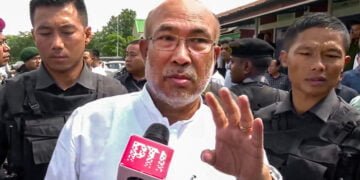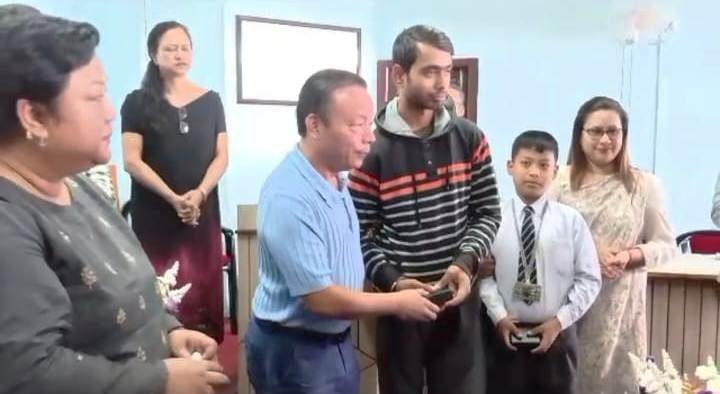A shortage of qualified doctors means that people with disabilities who are eligible for Unique Disability ID (UDID) cards are not getting them.
Nevertheless, Meghalaya is still performing well compared to other states in the issuance of the UDID cards, Commissioner for Persons with Disabilities, SB Marak, said today.
Marak was speaking at a function where free hearing aids were distributed to the disabled at Shillong Civil Hospital.
Social Welfare Minister Paul Lyngdoh was on hand as the chief guest, with Marak the guest of honour. The event was organised by the State Resource Centre on Disability Affairs in collaboration with the office of the Commissioner for Persons with Disabilities, along with Ali Yavar Jung National Institute of Speech and Hearing Disabilities, Kolkata.
Lyngdoh said that the Social Welfare Department is being revamped in a major way and is allocating a certain percentage of jobs in the state government for the disabled.
“We need to work together and be proactively engaged and always remind ourselves, like I remind myself each day, that ‘who you are is God’s gift to you and who you become is your gift to God’.”
A keen musician himself, Lyngdoh referred to the accomplishments of two disabled musical icons – Tony Melendez, who plays the guitar despite having no arms, and the classical composer Beethoven, who created many of his best known works while losing his hearing.
In her speech, Marak said that 21 types of disability have been listed under the Rights of Persons with Disabilities Act 2013, an increase on the previous law’s seven, and she expects that more will be added in future.
However, to get a UDID card, the disabled person has to have their disability assessed by a qualified doctor.
“It’s quite a challenging task to cover the entire state, especially Garo Hills,” Marak said. “The number of specialist doctors who are authorised and designated to give their signatures on the UDID cards are very few.”
However, despite these challenges, Meghalaya stands second next to Nagaland among Indian states when it comes to the issuance of UDID cards.
The ID card acts as a “ticket” to access programmes and provisions provided to the disabled, she explained.
























